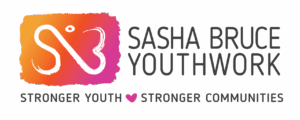
OPIOID RESOURCES
Watch the full interview featuring three brave individuals who found their strength.


The DC Prevention Centers are here to build safe, healthy, and drug-free communities across all Wards of Washington, D.C. Through youth engagement, family support, and local partnerships, we focus on preventing substance use before it starts.
The Opioid & Fentanyl Crisis in DC:



Young people experiencing homelessness or who are unstably housed have access to a variety of free services and supports at the center including:


What is an opioid?
Opioids are strong medicines that help with pain. Some are legal (like from a doctor), others are illegal.
Types:
They can be helpful if used right, but risky — they can be addictive and even deadly.
High-Risk Opioid
Fentanyl is 50x stronger than heroin and 100x stronger than morphine.
How Dangerous?
Just 2 milligrams (like a few grains of salt) can be deadly. It’s extremely addictive too.
You an’t See It or Smell It, you won’t know if fentanyl is in your drugs unless you test it.
You can find more info on Live Long DC’s Fentanyl Fact Sheet.
Xylazine
Xylazine, or “tranq dope”, also known as the “zombie drug,” is an animal sedative. Even though it is not an opioid, it is cut into street drugs like fentanyl to stretch the high.
What are the effects of Xylazine?
You can find more info on Live Long DC’s Xylazine Fact Sheet.
For more information on these or other substances, check out the DEA’s Drug Fact Sheet.
Be empowered. Look out for yourself and each other.
1. Only take what’s prescribed Never take more than your doctor says — and only take meds that are yours. If you’re not sure about the pill, test it. Fentanyl test strips are available throughout the District for FREE. Text 888-811 for pick up/mail/delivery and treatment sites. Use this video as a reference for how to use a fentanyl test strip. |
2. Don’t mix with alcohol or other drugs Mixing opioids with alcohol, sleeping pills, or other drugs can be deadly. |
3. Know the signs of overdose Slow breathing, pale skin, can’t wake up — call 911 right away if you see this. |
4. Carry naloxone (Narcan®) It’s a medicine that can reverse an overdose. You can save someone’s life. Not sure about how to administer Narcan? Check out this video on how to use Narcan. Naloxone is available throughout the District for FREE. Text LiveLongDC to 888-811 for pick up/mail/delivery and treatment sites. |
5. Never use alone If you or someone is using, don’t do it alone — someone should be there to help if something goes wrong. |
6. Ask questions Don’t be afraid to talk to a doctor, pharmacist, or trusted adult about how to stay safe. |
High or Overdose? Not Sure? If the person is unresponsive — treat it like an overdose.
Better safe than sorry. You could save a life.
1. Got Naloxone? Use it. Spray or inject naloxone (Narcan) if you’ve got it. Then call 911 right away. |
2. Keep them awake + breathing
|
3. Turn them on their side It helps stop choking in case they throw up. |
4. Don’t leave them alone. Stay with them. Wait until help gets there. They need you — and your calm energy. |
5. Worried about calling 911? Good Samaritan protections are in place in Washington, D.C.— This means you’re protected if you call for help. |
Naloxone can reverse an overdose — fast. Naloxone is easy to use and is available at all 4 DC Prevention Centers (no Rx, no ID needed) throughout the District for FREE. Text LiveLongDC to 888-811 for pick up/mail/delivery and treatment sites.
Step 1: Check for overdose signs. Common symptoms include:
|
| Step 2: Call 911 Even if they wake up — they still need help (Good Samaritan laws protect you in most states, DC included!). |
Step 3: Spray the Narcan
|
| Step 4: Wait + Watch Still unresponsive after 2-3 mins? Give a 2nd dose in the other nostril. |
Step 5: Keep them safe
If you aren’t sure how to use Narcan, you can refer to this helpful video tutorial. |


Be empowered. Choose right. Struggling with addiction, need help for a friend or family member, not sure? There are free resources available for you.
Direct line to mental health support and emergency care —24/7, all-in-one service for all. Whether you’re dealing with family struggles, grief, school stress, drugs, gangs, or violence.
Access Helpline is available 24/7 call:
Phone: 1-888-7WE-HELP (1-888-793-4357)
Urgent mental health support — 24/7, all-in-one service for adults 18+ who need immediate help.
Phone: (202) 673-9319
Address: 1905 E Street, SE, Washington, DC 20003 (on the grounds of the old DC General Hospital)
Treatment & Recovery Options — The Department of Behavioral Health (DBH) connects you to certified community providers for detox, residential, outpatient, prevention, and recovery services — all based on your needs.
DBH Assessment and Referral Center (ARC): (202) 727-8473
Hours of Operation: Mon–Fri, 7am–6pm (arrive by 3:30pm for same-day service)
Address: 75 P Street NE, Washington, DC 20002 (Look for the blue awning, enter on Florida Ave near P St)
On-the-Ground Support—24/7 support for adults in the district facing emotional, psychiatric, or substance use challenges.
Phone: 202-673-6495
Address: 35 K Street, NE, Washington, DC 20002
Walk-In Crisis Care —24/7 & free support for adults experiencing a substance use crisis with a focus on safety and harm reduction — reducing the risk of overdoses, injuries, and unnecessary involvement with the justice system.
Address: 35 K Street, NE, Washington, DC 20002


For more resources go to livelongdc.org
DC Prevention Center Wards 5 & 6
Sasha Bruce Youthwork
701 Maryland Ave NE, Washington, DC 20002
(202) 543-5796
Follow us on Instagram @dcpcwards5and6
Primary Contact: Charles Dark, Director | cdark@sashabruce.org
Secondary Contact: Robert Smith | (202) 843-4979
This activity is sponsored by the State Opioid Response grant through the District of Columbia Department of Behavioral Health.